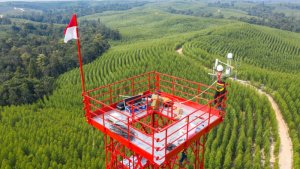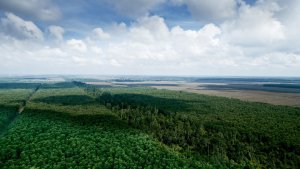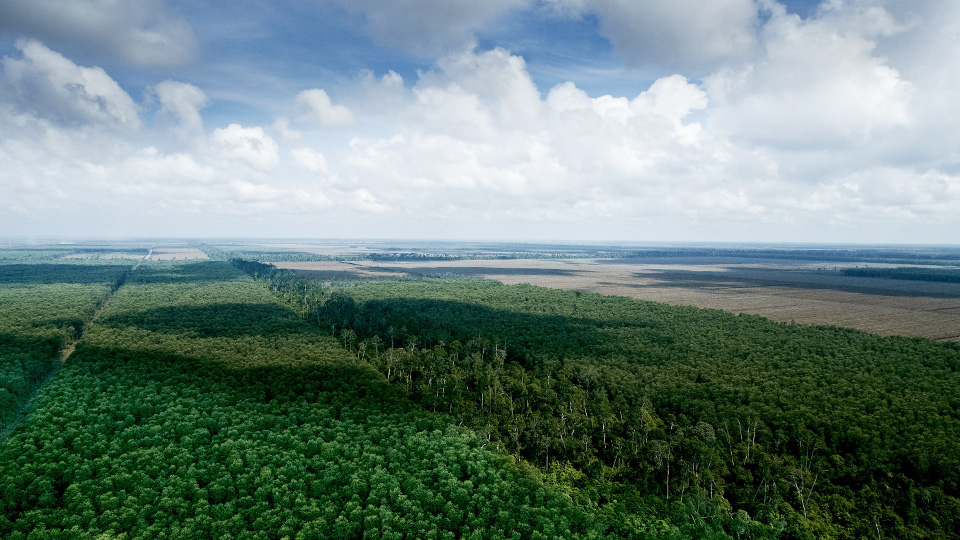Six Elephant Fun Facts from APRIL’s Flying Squad
- Details
The Sumatran elephant is a magnificent species on the verge of extinction. The IUCN Red List has elevated the species' conservation status from endangered to critically endangered, owing to a population decline of at least 80% during the last 75 years.
Supporting wildlife protection and conservation in Indonesia, especially endangered species, is one of the principles in the APRIL2030 commitments, our key operational emphasis for the next ten years.
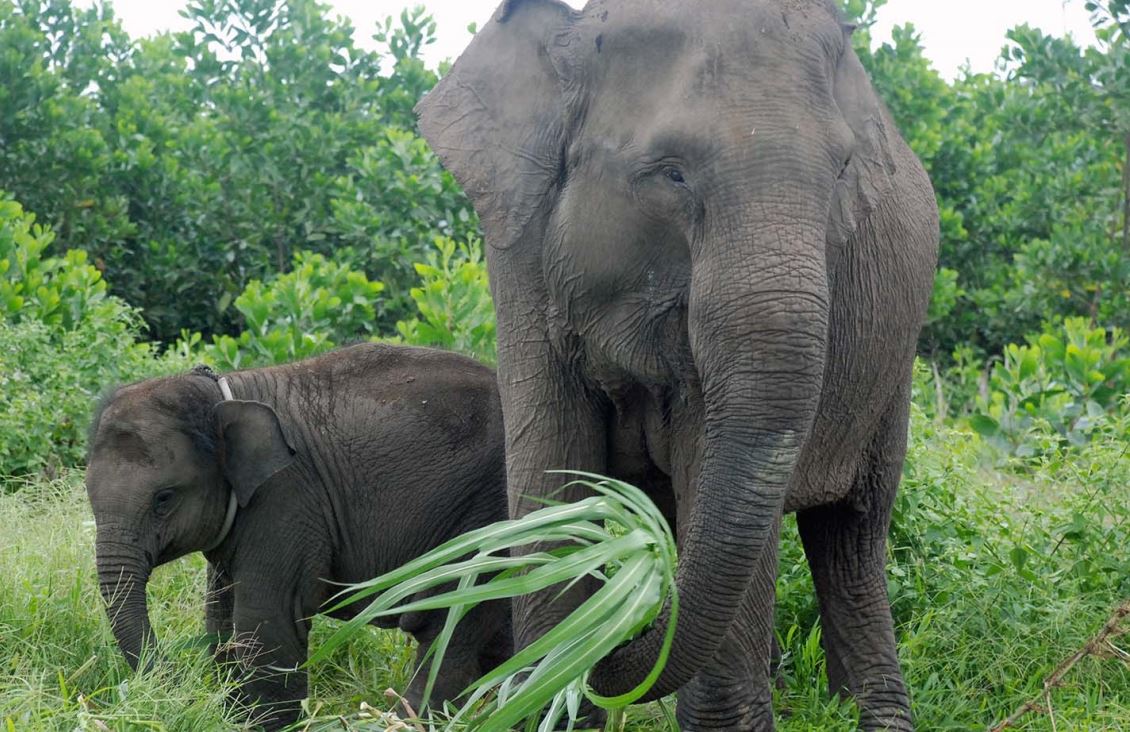
But even far before the vision was launched in 2020, APRIL has been managing the Elephant Flying Squad on its Ukui Estate in Pelalawan, Riau, which began operations in 2006. The estate currently has six elephants that patrol the forest and help direct wild elephants away from residential areas. The Ukui Estate is an essential habitat for wild elephants in Sumatra, where they dwell and reproduce.
The Elephant Flying Squad is generally divided into two squads, one to monitor the forests and the other to lead wild elephants away from towns.
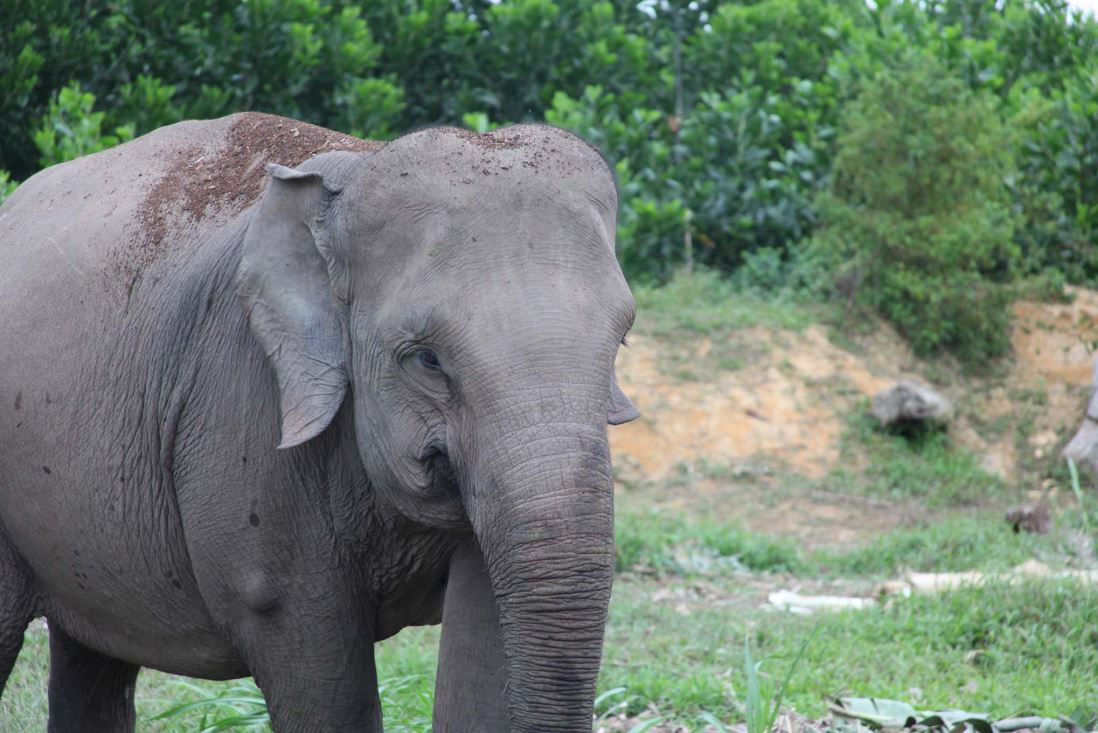
The company employs nine elephant trainers and often brings in vets to check the elephants' health.
"It was all about rescuing endangered species. That was our objective back then, and it is still our goal now," said Putra Nicaragua, APRIL's environment department coordinator.
"I am delighted to be able to connect with and assist in caring for the Sumatran elephant, one of the creatures that are now practically extinct. This is our effort to help the elephants survive and to assist the neighbouring community in coping with elephant-human issues," he continued.
But, most of all, Putra is happy because his job has allowed him to learn more about the majestic species, which he thinks is worth sharing so that more people will be aware of the importance of saving elephants.
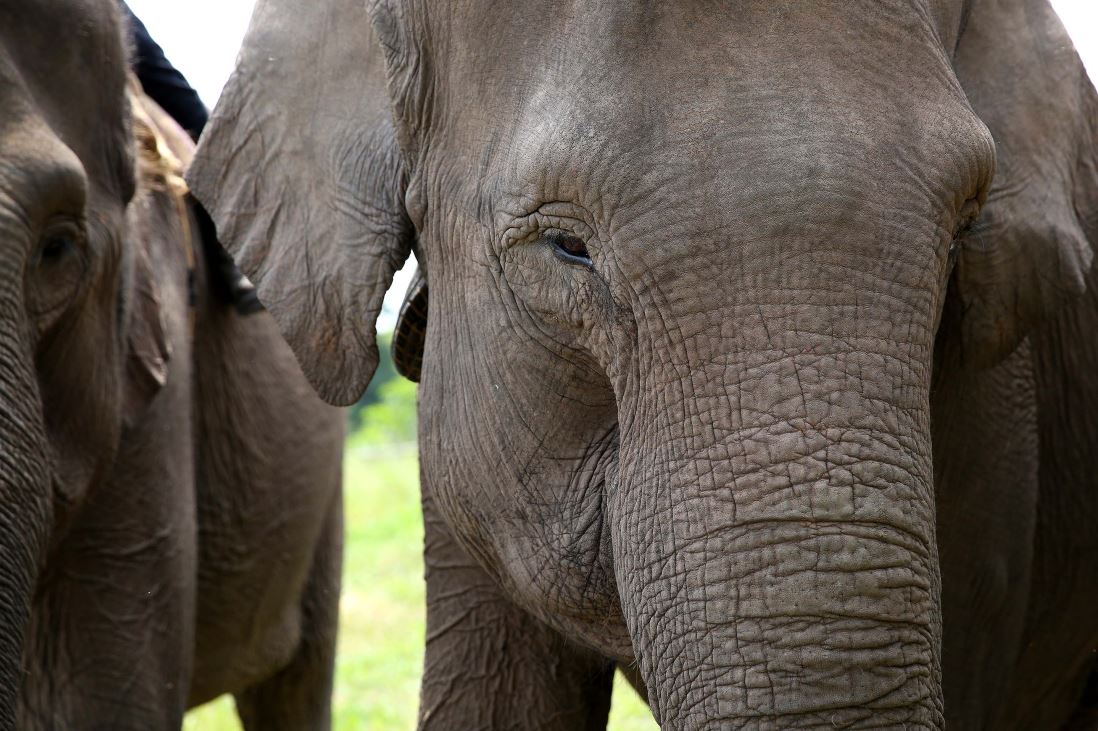
An elephant will always remember
The elephant's temporal lobe (the part of the brain linked with memory) is bigger and denser than that of humans, thus the proverb "elephants never forget."
Unique way in communicating
Elephants communicate using a number of means, including trumpet cries (some of which are too low for humans to hear), body language, touch, and odor. They may also communicate via seismic signals, which are noises that cause vibrations in the earth and detect the vibrations with their bones.
Elephant’s trunks are very useful
Elephant trunks have around 150,000 muscle units. Asian elephants have been observed picking up a peanut, shelling it, blowing the shell out, and eating the nut with their trunks, which are possibly the most sensitive organs known in any animal. Elephants take up water using their trunks, which may hold up to 8 litres of water. Elephants also utilize their trunks as a snorkel when swimming.
Elephant’s tusks are growing teeth
Elephant tusks are simply larger incisor teeth that erupt when elephants are about 2 years old. Tusks continue to develop throughout their lives. Tusks are utilized to aid in eating by removing bark from trees or digging up roots, as well as to defend against predators. However, these stunning tusks frequently endanger elephants.
They are made of ivory, which is a highly sought-after material.
Elephants have thick skin
The skin of an elephant is 2.5cm thick in most areas. Their skin's folds and wrinkles may store up to ten times more water than flat skin, which aids in cooling. They keep their skin clean and protect themselves from sunburn by bathing in dust and dirt on a regular basis.
Elephants never stop eating
Depending on the season and environment, elephants consume grass, leaves, bushes, fruits, and roots. Elephants will consume more woody components of trees and plants, such as twigs, branches, and bark, when conditions are very dry. They require up to 150kg of food every day, which is around 375 tins of baked beans, albeit half of this may pass through the body undigested. Elephants consume so much food that they can spend up to three-quarters of their day eating alone.
More Articles

